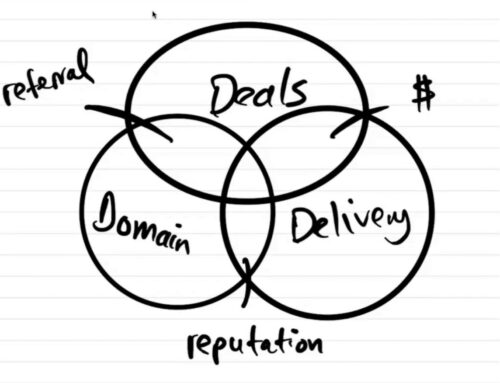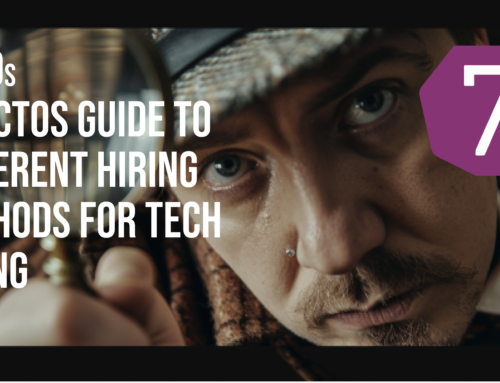The Psychology of People in Tech, with Joanie Connell
Who better to help us understand the psychology of people in tech than a former engineer now Ph.D. psychologist?! Joanie Connell is that very person and she is here to talk about the issues CTOs face in leading their teams.
Joanie works with dev teams and technical teams on their communication. We talk about how she does that, what some of the common issues are regarding team communication in tech today and a whole lot more. Join us to hear more about the psychology of people in tech on today’s CTO Studio.
In this episode, you’ll hear:
- What are the top challenges she sees regarding communication in tech today?
- Why it’s important as a CTO to expand your communication toolkit.
- How can you deal with feeling triggered in the workplace?
- Why addressing uncomfortable feelings often brings people closer.
- What are tell tale signs you are too deep into the tech effect?
- And so much more!
Before becoming a psychologist, Joanie was an engineer for eight years in Silicon Valley. She began as a data communications design engineer for Tandem computers. Tandem was one of the big computer companies back then right alongside HP and Apple.
Tandem made mainframe computers and they had parallel processors (hence the name tandem) for everything so they would never go down. One of their biggest clients was the New York Stock Exchange. She did data communications which meant she helped mainframes communicate with modems to other computers.
I asked Joanie how she made the switch to psychology – what happened that convinced her to work with the people side of tech? Joanie recalls she had gone into engineering because she thought it was a good stable job with a good income. She didn’t want to be a millionaire, she just wanted a good living.
People had always interested in her but it became obvious when the other engineers were so into their work they would be debugging til 2am, and she couldn’t wait to leave. She realized then that the work wasn’t satisfying and she felt stagnant in her work.
One story she recalls is a time when there were 12 in their group and they had a manager who they met with once a month. They’d get into the conference room and you could feel the tension because no one wanted to be there. The manager would go around the room and each person had to update on their project. By person #12 everyone would be ready to leave. When that last person finished it was like school was out and everyone would run out of the room!
She saw the people she was with didn’t want to be around other people and they didn’t have the skills to work with others, either. Engineers are trained to design, debug and code and they are not trained on how to interact with others. Joanie realized this could be a space in which she could make a difference; she could help engineers and other tech people communicate better.
To bring more of her skills to the people side of the working world, she tried marketing and then consulting. But eventually she decided to go back to graduate school because she would find herself being pushed back into engineering roles and more technical positions. She realized she would have to re-specialize so people would see beyond her engineering background.
But before making the leap, she took some night classes in Psychology to be sure this was the route she wanted to go down. And before becoming a psychologist, she considered being a therapist or counselor. A volunteer experience on a hotline convinced her otherwise, so she opted for social psychology with an emphasis on organizations and the workplace.
After a few years of working for a consulting firm and teaching at university, she formed Flexible Work Solutions. Her company provides assessment for leaders and teams of people, her personal niche is with technical people.
What types of scenarios does she typically get called in to work on? There are a few. One might be where a company is looking at their directors and above (their executive team) and the company evaluates what skill sets they currently have, who is going to get promoted and what is their succession plan.
She works with a company in this situation by doing an assessment: figuring out who has what skill sets, and what the team currently has and what they might want to develop or hire for the future.
Another scenario is individuals who have just moved up into leadership positions – this is especially common in the engineering world and the biotech world. A person has a particular expertise and then are promoted to a leadership role in which they have to utilize an entirely new set of skills outside of their expertise. She helps them through trainings and coaching.
Because she has some much experience in a variety of tech companies, I asked Joanie to tell us one of the top challenges she sees regarding communication in the workplace. Joanie says with the technical people, a challenge she often sees is a lack of value attached to people skills.
There’s more emphasis on using data and relying on data, rather than looking at potential emotional reasons that may exist.
For example, people have outside factors that affect them at work and those are things that leaders must be able to address. I agree and think this is a common issue we have in tech today. We tend to negate the emotional side of things.
Joanie goes on to tell us some tools we might consider using to help with team communication. We also talk about how to speak authentically, how to structure meetings to do check in with your team and more on today’s CTO Studio.
Episode Resources:
Share This Story, Choose Your Platform!
Related Podcasts




